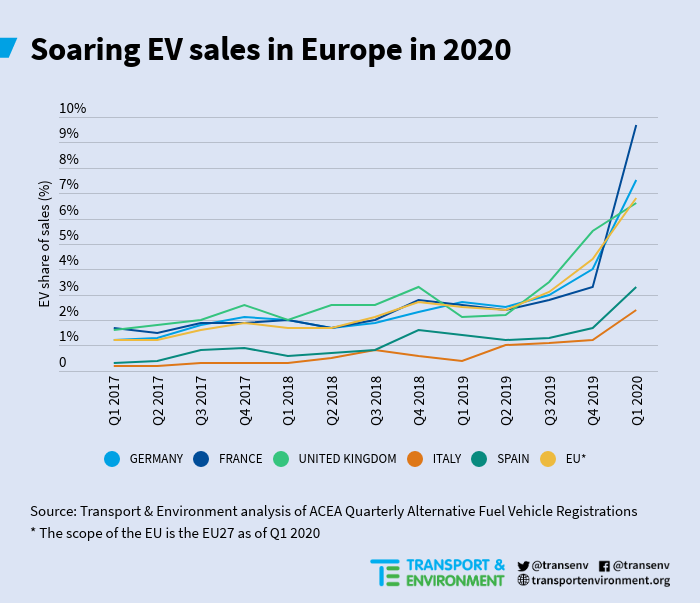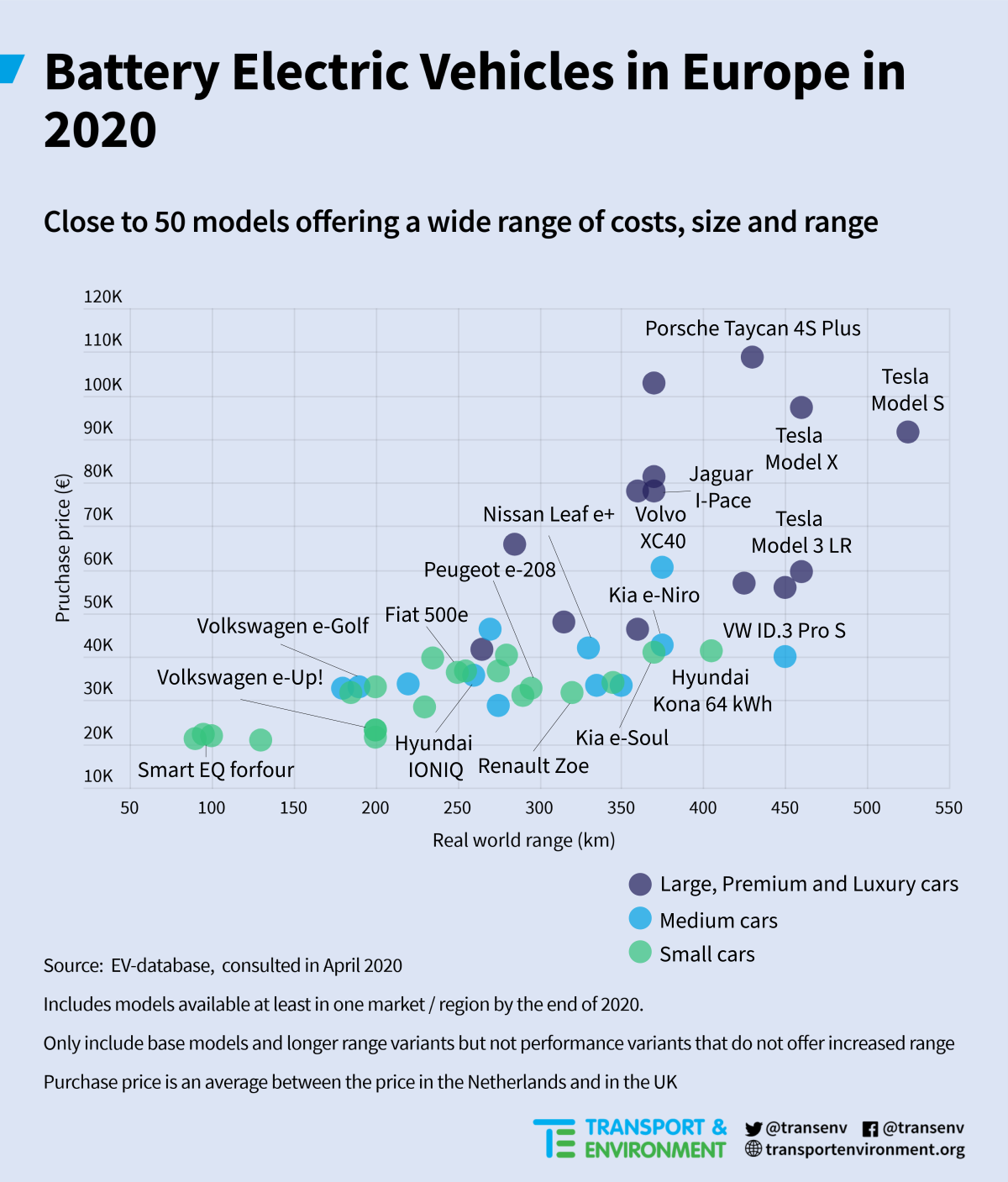
Interested in this kind of news?
Receive them directly in your inbox. Delivered once a week.
Plug-in vehicle sales surged between 6.6% and 9.7% in Europe’s three biggest markets, Germany, France and the UK, in the first three months. In Germany, where dealerships stayed open until 16 March, 9% of new cars sold that month were electric.[4] As a result, the vast majority of carmakers – including Renault, BMW, and Fiat and Tesla through their combined pool – were compliant with the EU CO2 targets already in the first quarter of 2020 before new EV models hit the market.[5] A few carmakers not yet in compliance are expected to catch up, including the VW Group which plans to bring its landmark ID.3 model to market very shortly.
Julia Poliscanova, clean vehicles and emobility director at T&E, said: “The crisis struck at the health of our citizens and at our economies. But the recovery offers the chance to build the clean mobility of tomorrow, not go back to polluting combustion engines again, by supporting the sales and production of EVs, batteries and charging infrastructure.”
The EU car industry wants vehicle purchase incentives to apply to all new cars that meet the 2019 Euro 6d temp standards regardless of their CO2 emissions, thus putting the unprecedented electric car momentum at risk.[6] These cars would include SUV models with CO2 emissions as high as 140-160g/km (WLTP), or way above the targets that carmakers have to hit to avoid fines. T&E said any public support for these cars would risk forcing the market back towards polluting diesels and petrols just as Europe catches up with Chinese carmakers and Tesla in the emobility race.
There are now almost 50 battery electric models on the European market, T&E analysis shows. Carmakers have invested billions in their production, which is set to reach around 3.5 million units in 2020/21.[7] A dozen battery gigafactories are also due to come online. T&E said any public support given directly to carmakers must be on condition that they cease development of new combustion engines and invest in electric car production and battery supply chains. Public stimulus should also target charging infrastructure and battery manufacturing in Europe to create jobs fast.
Julia Poliscanova concluded: “Thanks to the EU CO2 targets for new cars that kicked in 2020, EV sales picked up before the pandemic. Now that dealerships are reopening and carmakers are requesting a blank cheque, EU governments should support the sector in directing demand towards the clean, zero-emission models that carmakers are already making. This is sound economic policy, good for jobs, for the climate and for the clean air we all deserve to breathe.”
Cars in the EU27 emit 45% of transport CO2 emissions and their impact is still growing. To realise the ambition of the EU Green Deal, Europe will need at least 40% of new cars to be zero-emissions in 2030, and will need to sell the last combustion engine car by 2035 at the very latest.
Notes to editors:
[1] ACEA, press release, 12 May 2020. https://www.acea.be/press-releases/article/fuel-types-of-new-cars-petrol-52.3-diesel-29.9-electric-6.8-market-share-fi
[2] The ICCT, Market monitor: European passenger car registrations, January–March 2020, 28 April 2020. https://theicct.org/publications/market-monitor-european-pv-registrations-january-march-2020
[3] EPHA, press release, 16 March 2020.
“Patients with chronic lung and heart conditions caused or worsened by long-term exposure to air pollution are less able to fight off lung infections and more likely to die. This is likely also the case for Covid-19. By lowering air pollution levels we can help the most vulnerable in their fight against this and any possible future pandemics.’’ https://epha.org/coronavirus-threat-greater-for-polluted-cities/
[4] The ICCT.
[5] Ibid
[6] ACEA, paper, 5 May 2020.



